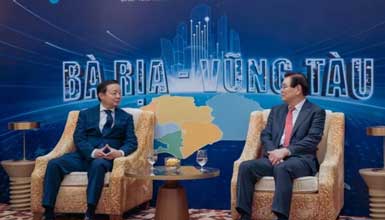Green materials: Hyosung to invest in US$1 bn bio-BDO facility in Vietnam; Neste/Lotte Chemical team up on renewable chemicals/plastics

South Korea’s Hyosung TNC is investing US$1 billion to build multiple bio-textile materials plants in Vietnam’s Ba Ria-Vung Tau province. It will start off with a new 50,000 tonnes/year bio-butanediol (bio-BDO) plant slated for start-up in 2026.
The company aims to eventually boost its overall bio-BDO production capacity in Vietnam to 200,000 tonnes/year and will be establishing a vertically integrated production system for bio-spandex, from raw material to fibre, it said.
The company claimed it will be the “first in the world” to establish a vertically integrated production system for bio-spandex, from raw material to fibre.
Hyosung explained it will be using US-based sustainable material and technology company Geno’s technology to fast track the project and unlock the production and selling of Bio-BDO with an annual capacity of 50,000 tons in the first half of 2026.
Hyosung TNC is the fibre production unit of South Korean industrial giant Hyosung Group.
BDO is a chemical used as a raw material for poly tetramethylene glycol (PTMG), which is used to make spandex fibre.
Bio-BDO is produced by fermenting sugars derived from sugarcane, replacing traditional fossil raw materials such as coal.
In addition to spandex fibre, BDO applications include engineering plastics, biodegradable packaging, and footwear soles.
Hyosung TNC will produce bio-BDO at its factory in the southern Ba Ria-Vung Tau province, manufacture PTMG at a nearby factory in Dong Nai, located south of Ho Chi Minh City, and then use this to mass-produce its regen bio-spandex at the Dong Nai Spandex factory.
Hyosung TNC plans to increase the sales volume of sustainable spandex, which currently accounts for 4% of its total spandex sales, to about 20% by 2030.
Hyosung’s chairman, Hyun-Joon Cho believes the bio business, which transforms conventional fossil raw materials into eco-friendly ones, will become a core pillar of Hyosung for the next 100 years.

In other news, Helsinki-based supplier of renewable/circular feedstock solutions Neste and South Korean chemical company Lotte Chemical are teaming up to make chemicals and plastics more sustainable. The collaboration will see Neste providing renewable Neste RE, a raw material for chemicals and plastics, that is made from 100% renewable raw materials. Lotte Chemical will use Neste RE at the company’s Korean sites to produce various common types of plastics and chemicals in Lotte Chemical’s broad product portfolio.
These plastics and chemicals may be used in multiple applications and in supply chains for various products ranging from packaging to construction and from textiles to electronics. The quality and performance of the end products remain unchanged.
With chemicals and plastics still largely depending on fossil resources, both companies see an urgent need to make a switch to more sustainable alternatives.
“We are looking forward to increasing the share of renewable solutions in collaboration with Lotte Chemical,” says Jeroen Verhoeven, Vice President Value Chain Development for renewable polymers and chemicals at Neste. “Together, we can pave the way to more sustainable supply chains and lower emissions for a wide range of sectors and applications.”
Neste helps its customers to reduce their greenhouse gas emissions by at least 20 million tonnes/year by 2030.
The company’s ambition is to make the Porvoo oil refinery in Finland the most sustainable refinery in Europe by 2030. Neste is committed to reaching carbon-neutral production by 2035, and will reduce the carbon emission intensity of sold products by 50% by 2040.
(PRA)SUBSCRIBE to Get the Latest Updates from PRA Click Here»





